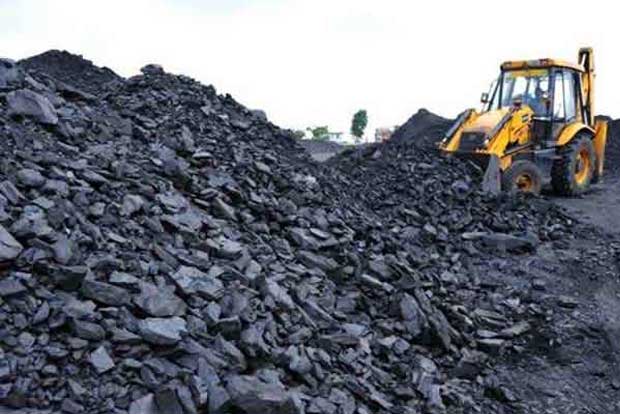Begin typing your search...
Unshackling coal sector: Easier commercial mining bid documents in Q1 FY21
After waiting for more than five years, the government may finally throw open the doors of the regulated coal sector for commercial mining by the private sector Indian and overseas miners in the first quarter of fiscal year 2020-21.

New Delhi
Government sources said that draft rules, bid documents and agreements for commercial mining has been prepared and it would be finalised by the end of the month after Cabinet approval with auctions starting soon thereafter.
The decision would permit domestic mining firms like Essel Mining, Sesa Goa, JSW Energy, Vedanta, Adani and global giants like Rio Tinto, BHP Billiton, PesBody, Glencore and Vale to mine and sell and help ramp up output from the country''s huge reserves -- the world's fifth biggest. It will also offer an additional source of fuel for power producers, some of whom are facing low coal stocks at their plants.
In order to address the concerns of the potential bidders, the coal ministry conducted pre-bid consultations stakeholders in Kolkata and Mumbai last month. Based on the suggestions received, the government has now agreed to ease bidding conditions that would form part of the document that would go for cabinet approval.
Sources said that government is considering allowing diet route for potential bidders of commercial coal mine and offer simultaneous prospecting and mining lease to bidders to ensure certainty on the investments made by the bidders. This would also prevent companies from making aggressive bids that puts the company in a difficult financial situation at production stage.
The bidding document may also offer larger flexibility to prospective companies in terms of revenue share commitment. Draft auction guidelines have proposed a floor price of 4% of revenue share for the auction and bids are to be accepted in multiples of 1% of the revenue share till the percentage of revenue share is up to 10% and thereafter bids would be accepted in multiples of 0.50% of the revenue share. This may be reduced to facilitate ease of bidding and true price discovery.
Also, the bid document may incentivise companies who also offer to undertake coal gasification from mines won by them. The revenue share for coal gasification would be kept low to active participation of companies.
The success of the first bidding round for commercial mines would have to be weighted against lack of investor interest in some of the recent coal auctions for end user plants. Companies shied away from bidding for 27 coal mine put up for auctions in the recent eighth, ninth and tenth rounds of bids turning the exercise into into a damp squib. Only six blocks out of 27 received adequate bids to go under the hammer.
"It is tough time to get investment commitment from investors even for commercial mining. However, the location of mines and quality and reserve of coal could change investment decisions," said a coal ministry official, adding that size of coal blocks Inder commercial mining route would be substantially large.
The commercial mining auctions could see in all 15 large coal blocks with annual production potential of 5-10 million tonnes being put up for bidding in phases. The reserves in five of these mines could be in excess of 500 million tonnes. These could fetch anywhere between Rs 5,000 and 6,000 crore to the state government.
If the pilot auctions are successful all future blocks could be considered to be offered for commercial mining with permission even for captive use by end use plants.
As of now, power, steel and cement companies can mine coal but for their own consumption after getting blocks through auction. State-owned Coal India (CIL) dominates commercial mining in India.
Government in January issued ordinance that lifted end use restrictions and opens coal sector for commercial mining. A legislation relating to opening up of coal mining has already been passed by Lok Sabha and after the nod of the lower house later in the current session, will become law.
The methodology for auction is expected ask bidders to submit upfront payment and bank guarantees. While the government will not regulate price, marketing or sale of coal, minimum production from the commercial coal mines will be specified. Bank guarantees will be linked to production schedule. Overseas companies bidding for mines would have to get themselves register in India.
Sources said price of coal to be sold by new entrants in mining may be determined on the basis of a formula that would fix prices by taking a mean of weighted average price of global benchmarks as well as prevailing Coal India prices. It would be akin to the gas sector where prices are not market-determined but fixed by the government based on global indices.
Commercial coal miners would also not have the freedom to export coal in the initial years. The government wants to take its coal block auction to logical conclusion with the aim of boosting production. A coal production target of 1.6 billion tonnes by 2020 has been fixed. It has factored in 200 mt production from commercial miners other than CIL.
Opening of coal sector is a long over due reform initiative that successive governments failed to take forward due to strong opposition from CIL unions.
Visit news.dtnext.in to explore our interactive epaper!
Download the DT Next app for more exciting features!
Click here for iOS
Click here for Android
Next Story



